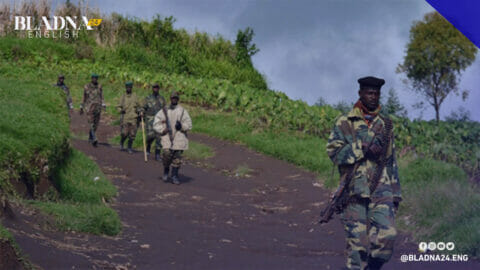The Democratic Republic of the Congo is constantly accusing Rwanda of continuing to support the March 23 Movement.
Rwanda denied the congo’s accusations about the movement whose leaders hail from the Tutsi community in North Kivu, Congo. which fought for years against the Hutu whose name is associated with the 1994 Tutsi genocide in Rwanda.
Despite the denials, The United States and many European countries also accuse Rwanda of supporting the March 23 Movement in the Congolese North Kivu region.
Moreover, UN experts published a report in December confirming that UN-authorized experts have collected evidence proving the direct intervention of the RDF in the territory of the DRC, at least between November 2021 and October 2022.
The movement is part of the massacres of the 1994 tribal warfare
It can be said that the M23 movement emerged as a result of the Rwandan massacres of 1994 and 15, and the two civil wars in the Democratic Republic of the Congo, in 1996, 1997, 1998 and 2003.
Hundreds of thousands of people were killed, and more than a million and a half Rwandans from the Hutus and Tutsis fled to eastern DRC, during the massacres of Hutu against the Tutsi ethnicity.
The Hutu transferred the battle to the eastern Democratic Republic of the Congo, tried to return to Rwanda and deposed Kagame. The Congolese army supported the Hutus, before signing the peace agreement on March 23, 2009.
Now, The M23 rebels are led by the Tutsi ethnic group, to which Rwandan President Paul Kagame belongs.
Accusations of supporting FDLR
Rwanda accused DRC of supporting the democratic forces for the liberation of Rwanda FDLR, located in the eastern of the Democratic Republic of the Congo The FDLR was founded in the Democratic Republic of the Congo after the 1994 war, and it includes Rwandan Hutu rebels.
Rwanda considers these Rwandan Hutu militias a threat to them, as their presence and violence were a justification for previous Rwandan interventions in Congolese territory.
The ambition of occupied Bunagana
The M23 controls the town of Bunagana on the border with Uganda, and it is an important transit point for goods imported into the Congo.
Last June, the Congolese army considered, in a statement, that attacking the March 23 Movement, supported by artillery and Rwandan army forces, on its positions near Bunagana, was considered an occupation, and nothing less than an invasion.
The goal that Rwanda seeks to achieve is to occupy Bunagana in order to surround the city of Gome, North Kivu, and put pressure on the Congolese government.







